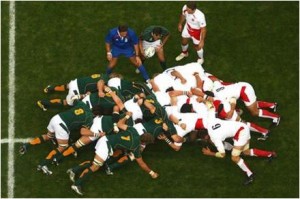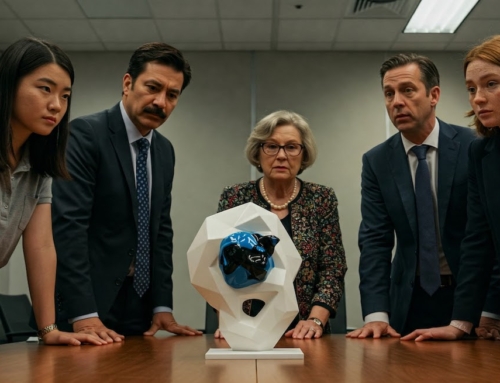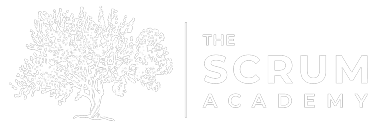
Why Crouch, Touch, Pause…Engage? What is a Scrum?

For those of you unfamiliar with rugby, you might be asking “What is a Scrum?” and “How does this help us work better and smarter?” Wikipedia has a long description of what a scrum(mage) is, so I will leave it to the experts to give you the details. The picture from the Rugby World Cup 2007 (held in France) shows you what a scrum looks like. The only comment I want to make about a rugby scrum is before the ball is “put-in”, the referee will call out, “crouch, touch, pause…engage”, and then the scrum half rolls the ball under the pack and then all the pushing happens. The point of a scrum is to get possession of the ball and a team that loses its put-ins just gave up possession (normally a bad thing).
Which ties very nicely why I chose this title for my blog: my job as ScrumMaster is to make sure the rules are followed. This might sound really stupid and probably anal retentive, but it is very challenging, interesting and very important. Scrum is a balanced process framework where each actor\player, has a very specific role with certain rights and responsibilities.The authors of Scrum were very wise to recognize that if you want Teams to be self-managing, collaborative and accountable, in addition to having a very basic process; you need to have a referee to blow the whistle from time-to-time to ensure people are respecting each other, the process and meeting their goals. However, do not make the mistake that the ScrumMaster has more authority than they really do. The ScrumMaster merely blows the whistle; it is up for the Team to devise the solution.
I migrated my old blog content to this site and this post refers to the old name of my blog – CEN 01/31/2009





